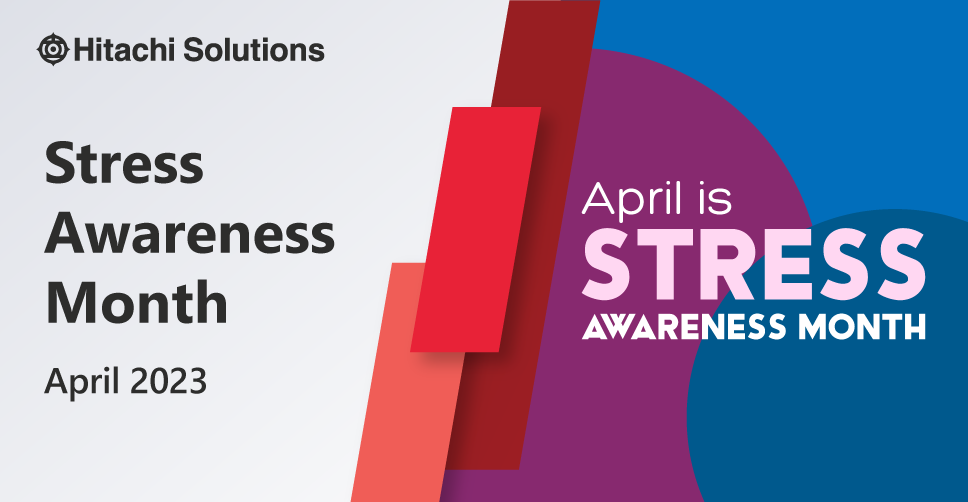

April is National Stress Awareness Month and it’s important we recognize that life inevitably comes along with stress. It does not discriminate and affects every single one of us. Some people more than others. But regardless of stress level, what seems to be universally told is that stress is bad for us.
But consider this:
- Is it our perception of stress that is actually the unhealthy part?
- Are the effects of stress – good or bad – in part, dependent on the way we deliberate?
- Can we change our body’s physical response to stress simply by looking at the difficult situations we encounter with a new lens?
- Can stress be beneficial by flipping our narrative from negative to positive, from hopeless to hopeful?
Rather than playing defense — muddling our way through, hoping that one day “stress” goes on a permanent vacation — what if we change the way we think about stress? Shift to a mindset that embraces the imminent speed bumps, hills, and mountains we encounter. To thrive intentionally and improve instead of reactively playing whack-a-mole with those obstacles.
Hitachi Solutions puts that philosophy into everyday practice. We meet stress where it lives in your business and help you face it head-on. We address it through the transformative solutions we create for our customers, as well as by being mindful of how we support our people by way of our programs, communities, and benefits.
Ongoing research suggests that stress can be constructive. It can be a means to become stronger and more compassionate, building confidence along the way. In other words — it can be an opportunity to learn, to grow, to do better. Lending itself to resiliency, closer relationships, and better health — stress can be good for us. If we can change the way stress is thought of, approached, and faced. If we can embrace life’s challenging disruptions and get better acquainted. If we can begin to view those heart-pounding moments and anxious circumstances as helpful, rather than harmful to our health.
The stress response is more than a basic survival instinct. It is built into how humans operate, how we relate to one another, and how we navigate our place in the world. When you understand this, the stress response is no longer something to be feared.
― Kelly McGonigal, The Upside of Stress: Why Stress Is Good for You and How to Get Good at It
Silly therapeutics? Smoke and mirrors? Bippity boppity boo and poof – stress is now good for us? Nope. The evidence lies within the body’s physical response (and the scientific research of course!).
When faced with a stressful or fear-induced situation, it is typical for a person’s heart rate to escalate and for blood vessels to constrict. The flow of oxygen and blood to vital organs like the heart is thus restricted, creating an unhealthy physical response to stress that can – with prolonged high levels of stress, lead to cardiovascular issues over time.
But Harvard University found that when the belief exists that the body’s stress response is designed to help us face and overcome adversity, it changes the way our bodies respond. Heart rate still increases, but the blood vessels widen and remain open and relaxed, allowing necessary nutrients to stream throughout the body while lowering blood pressure. Energized, this mimics a state of joy and courage and induces a healthy response to stress (Jamieson, Nock, & Mendes, 2012, Harvard University, Dept. of Psychology).
Studies also show that stress makes us crave human connection via dispersed oxytocin. While best known as the ”cuddle” hormone, oxytocin is also a peptide and a neurotransmitter. Released during stressful circumstances, it prompts behavior that strengthens relationships. It enhances empathy and it encourages us to seek support when we are stressed, as well as inspire us to help those we are close with – who are struggling with anxiety surrounding a difficult situation (Poulin, Brown, Dillard & Smith, 2013, University of Buffalo, NY, Dept of Psychology).
When we engage with those we care about and who care about us, even more, oxytocin is released. This protects our bodies and regenerates heart cells, enhances communication, and decreases anxiety. It assists with digestion, is a natural anti-inflammatory, and helps us respond and recover from stress faster. It’s pretty much the superhero of hormones in the way that it can improve our outlook. Our bodies may very well come equipped with the means to set us up for stress success — if we let it.
Hitachi Solutions works side by side with our customers to tackle the business obstacles they face. To not only seamlessly integrate technical solutions that solve those issues, but to lay an adaptive framework to proactively springboard from and build upon for the foreseeable future. How do we as a company benefit? By scientific default. Oxytocin flows when we help our customers transform their businesses for the better. And the release of oxytocin contributes to the overall health of our employees.
It makes us feel good to help others so it’s no wonder we do what we do. Join us in recognition of Stress Awareness Month – let’s embrace stress as a method of empowerment on our journey to a healthier existence!
Disclaimer: This content should not be used as a substitute for direct medical advice from your doctor or other qualified clinician.


